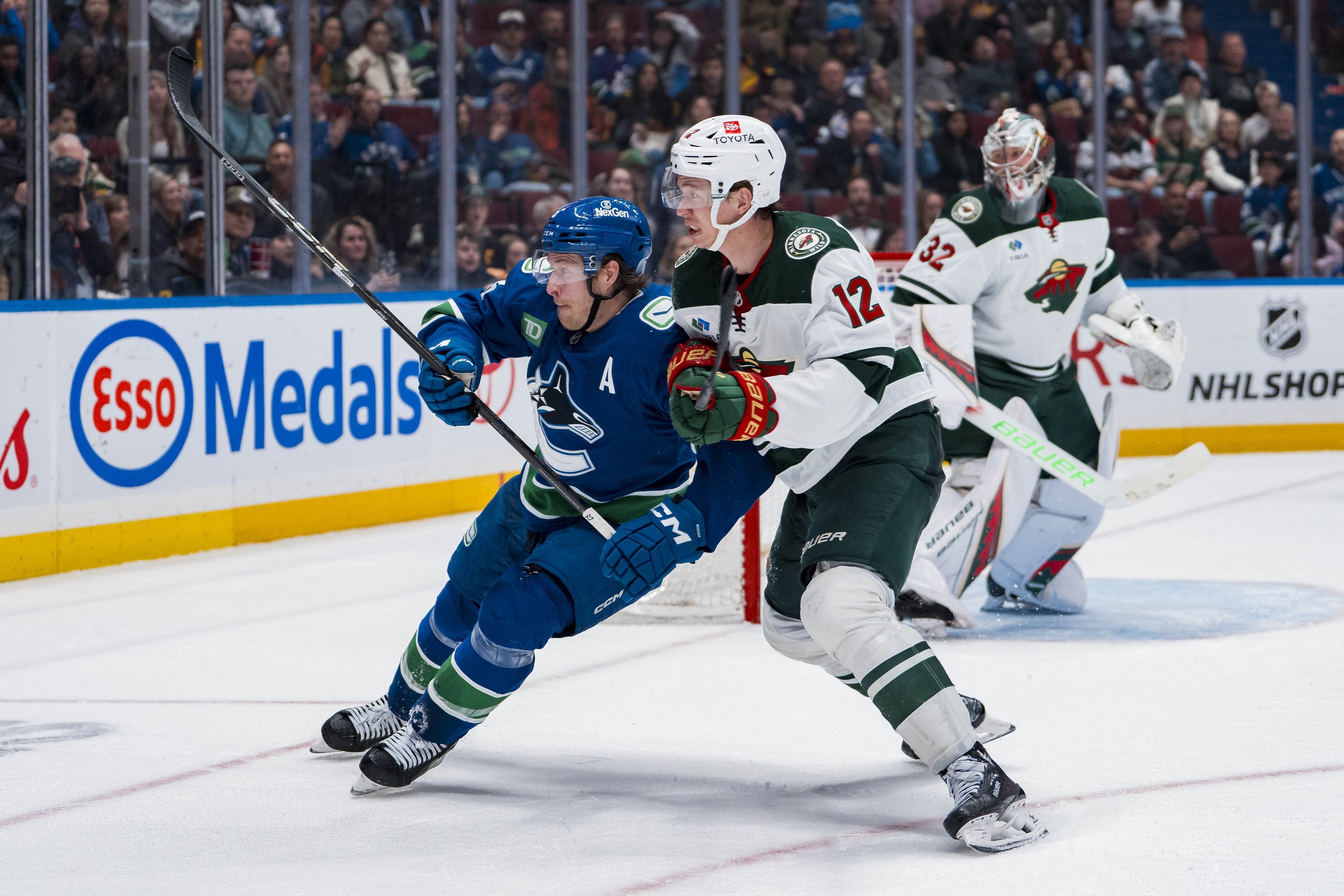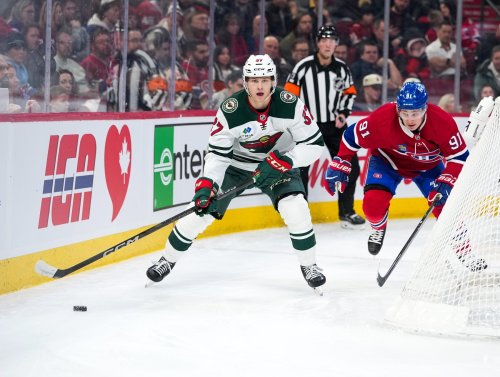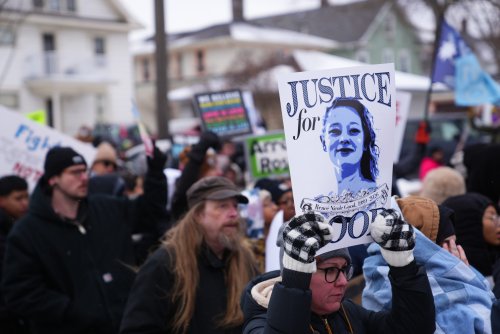
"You have to be careful, because July 1 can be a day of mistakes," Minnesota Wild general manager Bill Guerin warned back in March. "We will hopefully make good decisions and right ones. But it's going to be a time where organizationally we make a step."
The GM was right and wrong. Where he was wrong is obvious: It's July 7, and the Minnesota Wild haven't taken an appreciable step. Their major additions have been trading for Vladimir Tarasenko, a past-his-prime scoring winger, and signing Nico Sturm, a fourth-line, penalty-killing center. Both were decent enough bets in their own right, but Guerin miscalculated what would be available via free agency.
In fairness, it feels like everyone did. Top Wild target Brock Nelson signed long before he could taste free agency. Other top centers, such as Matt Duchene, John Tavares, and Sam Bennett, also didn't make it to July 1. The Toronto Maple Leafs traded Mitch Marner to the Vegas Golden Knights, taking the No. 1 free agent target for most teams off the board, as well. Brock Boeser was the only big-name player even remotely connected to the Wild as free agency opened.
Then, his name was also gone after he re-upped with the Vancouver Canucks for a seven-year deal.
And here's where Guerin was right: July 1 is a day of mistakes.
On the most recent "Worst Seats in the House" podcast, Michael Russo revealed the Wild were willing to go for a six-year deal for Boeser. It's a revelation that surprised the reporter, who had previously believed they would pursue the scoring winger to a three- or four-year contract. When signs started pointing against Boeser coming to Minnesota, it was only then the Wild pivoted to Tarasenko.
Still, despite knowing that free agency can be a trap, the Wild were willing to step into it and hope for the best. It's easy to dunk on a team for being willing to throw big money around. However, if you're trying to improve your team, and Boeser is what's available? Well, the price is the price.
Make no mistake, if the Wild had signed Boeser, there would be good reason to talk ourselves into it. You might be reading that line of thinking and counter with the fact that Boeser is 36th among all NHL players in Goals Above Replacement on the power play over the past three seasons, per Evolving-Hockey. Minnesota was 21st in goals per hour on the power play last year and a middle-of-the-road team (14th) over the last three. Boeser on the power play would have given the Wild a dangerous right-shot weapon for Kirill Kaprizov to set up for one-timers.
Boeser also has goal-scoring utility at 5-on-5. His 0.82 goals per hour over the past three seasons is tied for 106th (among 370 forwards with 1,500-plus minutes) in the NHL, along with teammate Elias Pettersson. It's also slightly ahead of star players like Marner (0.81), Mark Stone (0.81), J.T. Miller (0.80), and Kevin Fiala (0.77). That rate would have been second on the team last season, behind only Kaprizov.
Goals are the rarest commodity in the game, so it makes sense that Guerin was apparently willing to go for six years on Boeser, who can provide them in spades. Boeser averages 30 goals per 82 games throughout his career. While he has had trouble consistently playing 82 games, he has drawn in at least 70 times in each of the past four seasons.
So, why would we think the Canucks did the Wild a favor by biting the bullet on Boeser?
Boeser provides a team with goals, but he's a flawed player overall. Do you take that tradeoff when he's on an Entry-Level Contract? Absolutely. Do you take that tradeoff when he's making below $7 million? Yeah, probably. But what about when his price shoots above $7 million, and you're now footing the bill for his early 30s? It gets dubious.
At age 28, Boeser still has some peak-ish years left. But the Wild have been burned by his player profile before: Great shot, low speed, and poor defense. Dany Heatley and Thomas Vanek come to mind. Jason Pominville -- though not quite that profile -- saw his last 30-goal season at age-31, then never hit 20 again. Unless you're a freak like Alex Ovechkin or Steven Stamkos, elite shots go away eventually, and you have to have a backup.
Granted, Dom Luszczyszyn is bullish on Boeser to replicate Phil Kessel's aging curve. That's clearly the bet Vancouver is making and what Guerin -- who was in the front office while Kessel got his Cup rings with the Pittsburgh Penguins -- would also bank on. But the rest of those top Boeser comparables include Derick Brassard, Adam Henrique, Artem Anisimov, P.A. Parenteau, Milan Michalek, Alex Chiasson, and Michael Ryder. Not exactly an inspiring list.
One should also assume that the Canucks got a cap hit discount that wasn't available to Minnesota because league rules allow teams offering an extension to add an extra year. Boeser's getting $50.75 million on his seven-year deal. For Boeser to recoup that money for a six-year pact, the Wild would have had to pay in the range of $8.5 million per year. Vancouver may also have gotten the "hometown discount" despite Boeser being from Minnesota because moving to another team would have uprooted his life.
Still, even at $8 million, that's not a bet that was likely to age well. Despite the short-term boost it would have given the Wild's power play, going for Tarasenko as a stopgap while retaining flexibility to pursue a bigger fish at a later date is the smart play. If they had to get an assist from the Canucks to do the right thing, so be it.
Think you could write a story like this? Hockey Wilderness wants you to develop your voice, find an audience, and we'll pay you to do it. Just fill out this form.
-
 3
3








Recommended Comments
Join the conversation
You can post now and register later. If you have an account, sign in now to post with your account.
Note: Your post will require moderator approval before it will be visible.